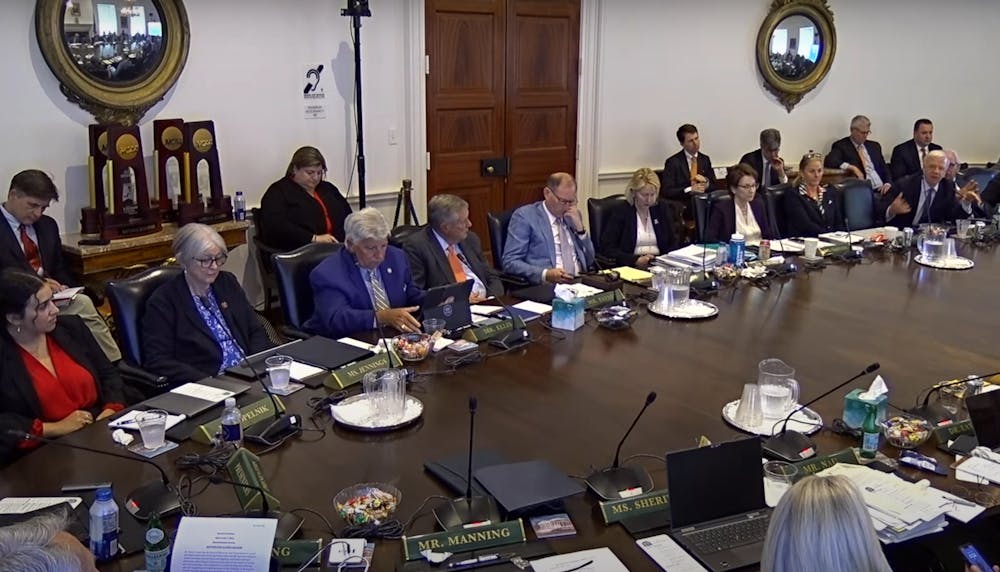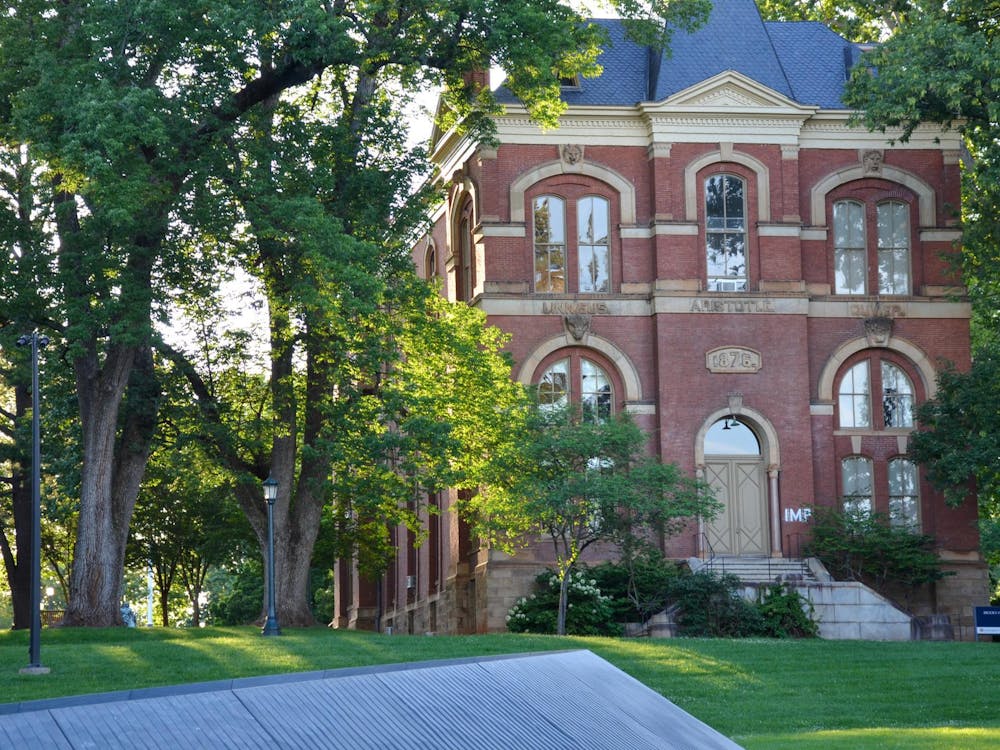The Board of Visitors’ Academic and Student Life Committee heard updates on the ongoing implementation of a new advising software for undergraduate students, as well as an improved advising system for the College of Arts and Sciences, at its meeting Thursday. College Dean Christa Acampora also presented on the progress of the Task Force on Religious Diversity and Belonging, which was created in December with the mission of better understanding the experience of religious students and faculty at the University.
The Committee first announced the implementation of a new advising software at its meeting last June. According to the University Registrar website, the software, known as Stellic, will allow students to connect with different types of advisors, such as academic and residence life advisors, in one place, as well as plan their course schedule for each semester instead of using the current Student Information System website.
According to Committee Chair Elizabeth Cranwell, one of the reasons the University decided to overhaul the undergraduate advising system was negative feedback from students and parents alike, many of whom criticized existing advising resources as insufficient.
“When you ask an undergraduate student in the College of Arts & Sciences who has been at U.Va. about their advising experience, there is a common refrain — ‘not good,’” Cranwell said. “The work needs to be done.”
Brie Gertler, vice provost for academic affairs, said the new advising software will first be made available this summer to incoming first-year students in the School of Engineering and Applied Science and second-year students in the School of Data Science. She also said the software will subsequently be made available to all first-year students for the Fall 2024 semester, then to all second and third-year students in the subsequent semester.
According to Acampora, improving undergraduate advising is an important part of the University’s 2030 Plan, a set of initiatives and strategic goals designed to make the University the best public institution in the nation by the end of the decade. She said this new advising software is part of a larger overhaul of advising within the College in particular, which also includes expanding recruiting and improving training for faculty and staff involved in advising in the College.
“We are well on our way toward creating an advising community that fits the needs and our vision for excellence,” Acampora said.
Following Acampora’s remarks, University President Jim Ryan asked how the changes to the College’s advising system will affect its COLA 1500 classes — seminars for first-year College students taught by faculty who then serve as their pre-major advisors — one of which he teaches. Acampora said that COLA classes will remain for the coming year, but that the future of these classes in the long term remains unclear.
The Committee also heard updates on the progress of the Task Force on Religious Diversity and Belonging, also presented by Acampora, who serves as the task force’s chair. The University created the task force — which comprises professors, administrators and one student — with the mission of developing recommendations for Ryan about how to improve religious inclusivity on Grounds.
According to Acampora, the task force’s work has involved organizing focus groups of students, faculty and contracted employees, as well as analyzing data about antisemitic and Islamophobic incidents reported at the University in recent years. While the task force began meeting in January, she said that it will not send recommendations to the University administration until the end of the month.
Acampora said that while the recommendations have not yet been finalized, the task force has made some “high-level observations” about ways to improve religious acceptance on Grounds — namely, integrating religious inclusion into more of the University’s academic offerings and increasing the University’s responsiveness in moments of crisis. Acampora said the Committee’s efforts have focused on finding ways for the University to effectively support those who have not felt a sense of belonging on Grounds.
“I also believe the [task force’s] ultimate recommendations have the potential to be effective in creating real and lasting positive change,” Acampora said. “We should do it because we want all members of our community to have a positive experience here at the University.”
Earlier in the meeting, Todd DeSorbo, coach of the 2024 NCAA champion Virginia women’s swimming and diving team, spoke to the Committee alongside three team representatives — third-year Education student Izzy Bradley, fourth-year Commerce student Gretchen Walsh and Class of 2023 alumna Ella Nelson. In their remarks, DeSorbo and the student athletes thanked the Committee for supporting the team.
“It’s really great to be able to put faces to names of some of our biggest supporters,” Bradley said. “It really does not go unnoticed. We feel your support in and out of the pool.”
These representatives of the team visited less than two weeks out from the beginning of the 2024 U.S. Olympic Team Trials for swimming, where athletes will be selected to swim for the United States team at the 2024 Paris Olympics. According to Walsh, a total of 50 swimmers, comprising current students and recent alumni, will represent the University at the trials.
The Committee also approved the creation of three endowed professorships — the H. Louis Salomonsky Professorship in Real Estate, the Daniel M. Becker Professorship in Geriatric Research and the Mary Ann Pitts Jefferson Scholars Foundation Distinguished Professorship in Mathematics. These professorships were funded by Class of 1962 Alumnus H. Louis Salomonsky, Dr. Carol R. Angle and Class of 1986 Alumnus Robert S. Pitts Jr. respectively. Endowed professorships are titles granted to professors in recognition of excellence in their fields.
Committee members also voted to rename the White Burkett Miller Professorship in Government and Foreign Affairs to the White Burkett Miller Professorship in Public Affairs, as the terms of the gift did not require that the chairholders’ title include “Government and Foreign Affairs.” This vote also expanded the number of professors who could hold the professorship from one to three.
The Committee will meet again when the Board reconvenes for its September meeting.







